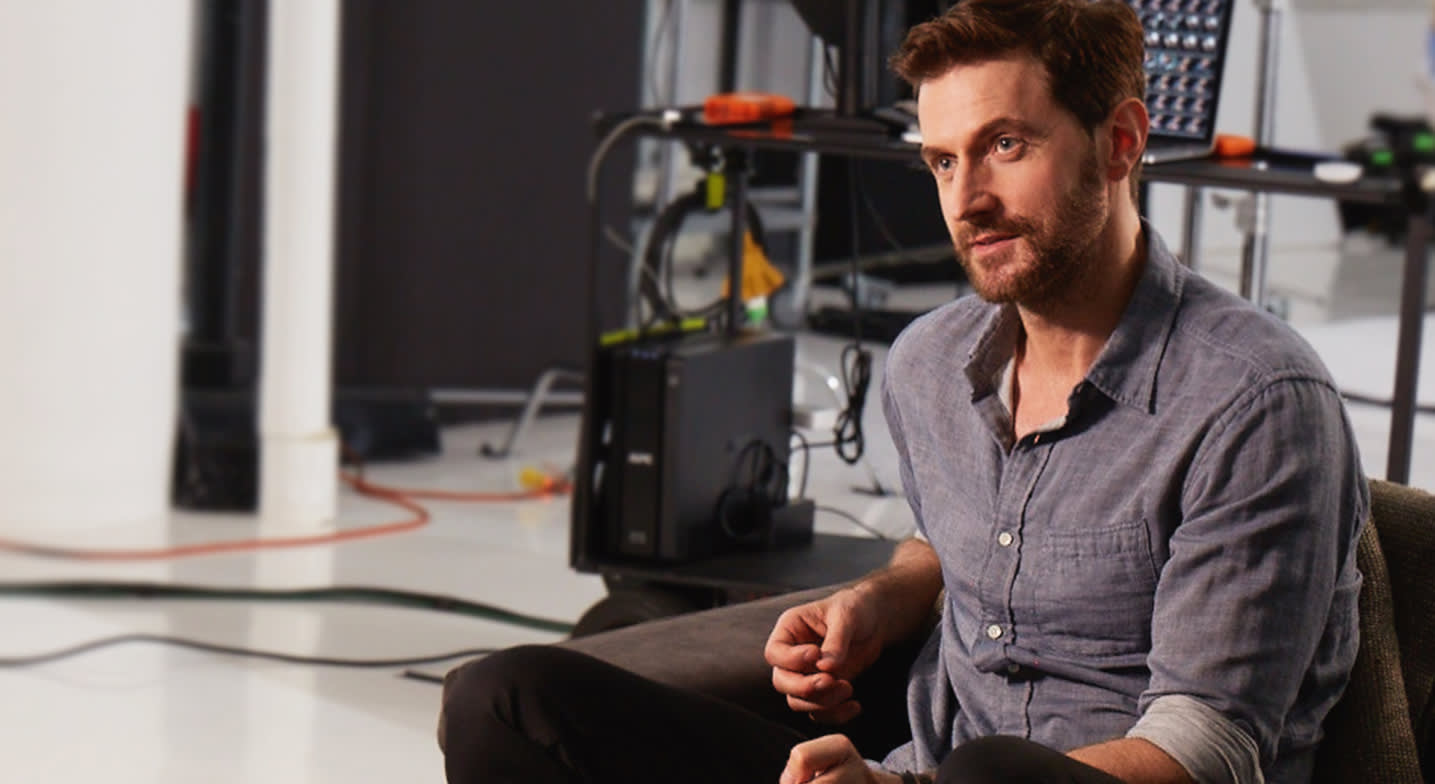Note: Text has been edited for clarity and will not match video exactly.
Audible: How familiar were you with the story of Romeo and Juliet before this production?
Richard Armitage: I feel that my contact with Romeo and Juliet has been really prolific throughout my life, without my necessarily knowing it. I saw the musical West Side Storywhen I was really little, and I hadn’t quite figured out that it was taking the essence of Romeo and Juliet and putting it into that magnificent musical.
I’m a big classical music fan, so I was very aware of the Prokofiev score and the Tchaikovsky score, two ballet scores of Romeo and Juliet. I’ve seen productions of it in dance. When I got to drama school, we studied Shakespeare and, of course, Romeo and Juliet came through.
A: Romeo and Juliet: A Novel marks the second time you’ve performed a Shakespearean novelization by David Hewson, the first being Hamlet. What makes these projects so compelling?
RA: What David Hewson did with the script was so exciting to me. I really loved the fact that he followed avenues that Shakespeare suggested but didn’t necessarily go down. I love that he will take the essence of Shakespeare’s words and create modern dialogue.
The thing that I found most stimulating about removing the bonds of Shakespeare’s poetry is that it brings the story into a very contemporary setting, even though it’s still set in 1499. I feel like the modern reader can listen to these characters, and listen to this story, understand Juliet’s perspective, understand Romeo’s perspective, and understand the perspective of a family who are really at odds with each other.
A: It’s hard to believe we’re talking about spoilers within the context of Romeo and Juliet, but — without giving anything major away — what new wrinkles to the story surprised you?
RA: One of the things that really surprised me — and I actually had to go to Shakespeare’s play just to check that it wasn’t something I’d missed — was the fact that David Hewson had made the two families wine growers with rival grapes on the vine. The fact that their family feud was based on the popularity of their product and trade, which I felt was, in a way, insignificant and trivial, but at the same time very important to those families because it really defines their status in society and the survival of their line.
A: David Hewson is a master at setting the stage for listeners. Could you say a little about how he brings us into his world?
RA: He really manages to convey time and place, particularly with this story. It’s so interesting: the people that he references, the Renaissance, Leonardo da Vinci, the discovery of the New World. It really gives you a sense of that burning desire for opportunity as they’re about to step into the 1500s. Within the first page, I was very excited to learn what was going to happen next.
A: Rumor has it you got a surprise visit in the studio from Mr. Hewson.
RA: It was the second day of recording. A gentleman walked in, and he sat down and said, “Oh, hello, I’m the writer.” I immediately thought, “Oh my God. He’s going to have to listen to me making a pig’s ear of his work,” but he was absolutely delightful.
I found him fascinating because I truly understood the level of research that went into the creating of the novel. He’d been to Verona. He’d walked on foot around the city so that he could describe the shape of the crenellations on the city walls and feel the heat. He really breathes life into the context, which I found interesting.
A: How did you approach voicing the characters?
RA: I really try to look at what the author was hoping for when they wrote the work— whether that’s David Hewson or William Shakespeare — and the tone of the piece itself.
With Romeo and Juliet: A Novel, I didn’t want to create too many big characters. Aside from the nurse, the character voices are more subtle than I’ve made in the past. At the same time, I needed to identify where people come from and who their allegiances are, whether they are nobility or staff or beggars on the street. So I chose to make the Capulets sound one way and the Montagues have a slightly different sound. I also put a little Italian voice in there, just for my own pleasure.
A: This is a much different Juliet than the one we know from Shakespeare. How has the character been reimagined?
RA: As you listen to the book, you’ll understand that her sensitivity and her sensibilities are of a very modern woman, which I found refreshing. And the remarkable thing is that, as a character, she herself understands that she’s a woman bound by her time. Ultimately, that drives the narrative. It drives you towards that point where you understand what she’s going to do and why.
The Elizabethan “melancholy male” was something that was celebrated. It meant that you were thinking and feeling, and that you questioned yourself. You questioned your emotions. David Hewson puts that into his female protagonist. Which, I think, makes her incredibly well rounded.
A: To your point, Juliet is very much a grown woman when the story begins. By contrast, Romeo is a boy who evolves into a man — and that journey is painful for him at times.
RA: He’s a pacifist until the moment when he’s faced with Tybalt, and he’s torn. Romeo is recognizing that his love, his passion for Juliet is hardening him as a man. It’s giving him resolve and the ability to actually murder somebody. It’s something that he’s uncomfortable with. It’s a new feeling. That self-realization, I think, is really interesting.
A: For him, the fact that even true love has a dark side is definitely a rude awakening.
RA: It’s one of the things that Shakespeare absolutely captures and believes in through all of his work, which is the idea of the dark and the light being in opposition to each other — and that without one you can’t have the other.
Life can’t always be viewed through rose-tinted spectacles. You have to go to the pit of despair in order to rise to the height of ecstasy. Both Romeo and Juliet recognize that.
A: So, as Friar Lawrence says, is “slow and moderate” love the only kind that lasts?
RA: I guess I agree in theory, but as human beings we seek out the opposite. I don’t think we seek out patient moderation in love. I think it’s ultimately what is good for us, but we want to be intoxicated to the point of losing ourselves. It’s where, as human beings, we are at odds with what’s good for us.
A: What makes listening to a story so special?
RA: The more successful audiobooks that I’ve listened to myself, I’ve realized that it’s absolutely about performance and immersing an audience in the world that you’re depicting.
Ultimately, who doesn’t love to be told a story? Even before we understand words, we are sung to, we’re told stories. To be told a great story is ultimately what draws us to reading. It’s what drew me to acting. It’s acting in its most raw form, for me.
A: What would Shakespeare think of how we express ourselves today?
RA: I’m on Twitter, and I struggle to express myself in 140 characters. We have such access to an amazing vocabulary, thanks to Shakespeare. The vocabulary of the Elizabethan mind was actually about three times the size of what we use today.
I want to be a pioneer for the use of great words, because when you find the word that you really, really need, and you use it, it’s very satisfying. If you try to describe what it is you’re feeling, and you can’t, then I think that’s a tragedy for us as human beings. You need words.





